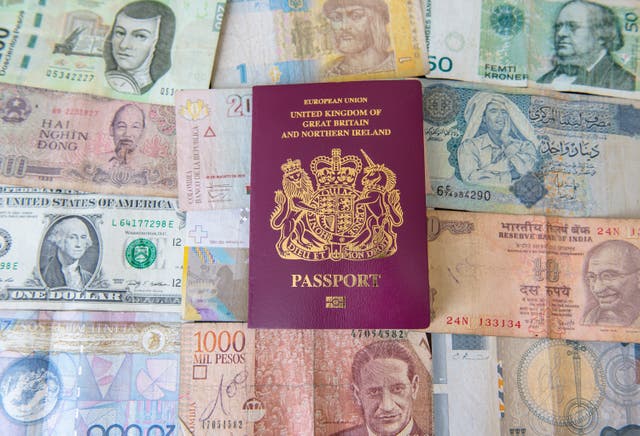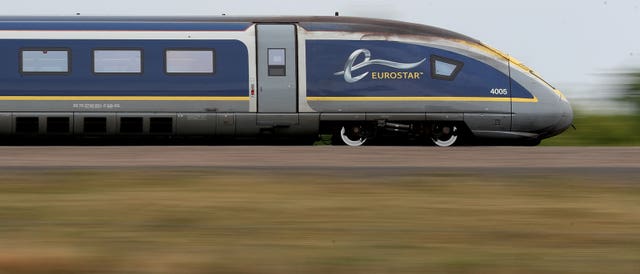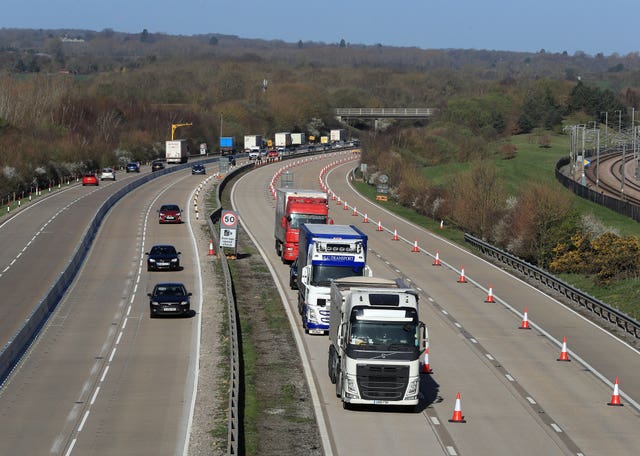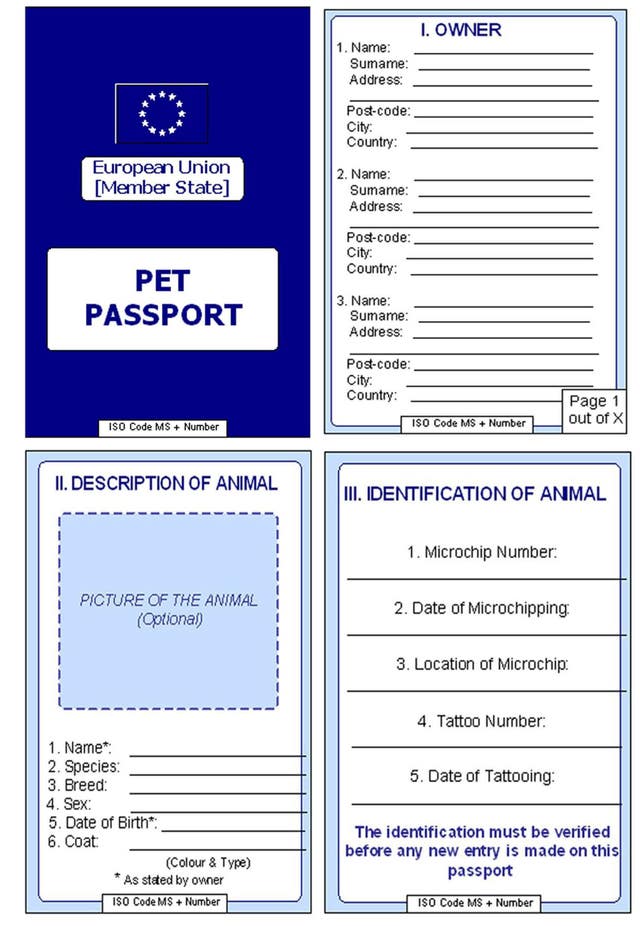
UK citizens will experience changes in how they make overseas journeys if the UK withdraws from the EU on Friday.
Here's how a no-deal Brexit would impact the transport sector:
Driving licences:
Mutual recognition of driving licences between the UK and EU may end, meaning UK drivers could need an International Driving Permit (IDP) to drive in all EU and European Economic Area (EEA) countries, apart from Ireland.
READ MORE: Brexit: What happens if the UK crashes out of the EU without a deal
UK drivers may be turned away at borders or face enforcement action if they have not obtained the correct permit.
IDPs cost £5.50 each and can only be bought over the counter at around a fifth of Post Office branches.
 (Anthony Devlin/PA)
(Anthony Devlin/PA)
Passports:
Holidaymakers and business travellers may need to renew their passports earlier to visit countries in the Schengen zone such as France, Spain and Italy.
Currently, UK citizens only need a passport valid for the length of their stay when visiting the EU.
READ MMORE: Brexit: Theresa May to meet Angela Merkel and Emmanuel Macron in push for extension
But a no-deal Brexit may mean they need at least six months left on their passport from the date they arrive.
Until recently, UK citizens who renewed their passport before it expired could have up to nine months of the remaining validity added to their new travel document.
The Government has warned that this time carried over will not count towards the six-month requirement, meaning people with up to 15 months left on their passport could be denied entry to many popular destinations on the Continent.
Flights:
The European Commission has said UK airlines will still be able to operate flights between the UK and the EU.
A similar assurance has been given by the UK Government for EU airlines.
 (Gareth Fuller/PA)
(Gareth Fuller/PA)
Eurostar:
Eurostar says it expects to “maintain services on the existing basis, timetable and terms and conditions” following Brexit.
But dozens of trains were cancelled in March due to industrial action by French customs workers, who demanded more pay and resources ahead of Brexit.
Staff worked to rule by carrying out more stringent checks than normal in an attempt to demonstrate the impact of tighter border controls after the UK withdraws from the EU.
READ MORE: Angela Merkel should reopen Irish backstop talks to support ‘proper Brexit’ - Andrea Leadsom
This caused long queues for road vehicles at the Eurotunnel terminal in Calais, northern France.
Ferries:
Ferries and cruises are expected to continue to operate as the majority of the rules under which they operate are based on the EU.
But tougher customs checks could lead to delays on entry and exit.
 One side of the M20 in Kent closed for Operation Brock (Gareth Fuller/PA)
One side of the M20 in Kent closed for Operation Brock (Gareth Fuller/PA)
Roads:
Operation Brock has already been deployed to keep the M20 open in both directions in Kent.
In the event of a disruption in Dover, lorries travelling to mainland Europe will be held on the coastbound carriageway while a contraflow system will operate across other lanes.
The previous method for dealing with lorries queuing, known as Operation Stack, meant sections of the motorway were closed and caused chaos for local journeys.
Visas:
The EU has agreed in principle that UK citizens will not need a visa for short visits.
 (PA)
(PA)
Pet travel:
Pet owners hoping to travel to the EU with their pets may face months of preparation before their trip.
Owners of cats, dogs and ferrets could have to discuss their plans with their vet at least four months in advance, depending on what category of “third country” the UK becomes.
Currently, EU nationals can freely travel with their cat, dog or ferret if it has a European pet passport.



Why are you making commenting on The Herald only available to subscribers?
It should have been a safe space for informed debate, somewhere for readers to discuss issues around the biggest stories of the day, but all too often the below the line comments on most websites have become bogged down by off-topic discussions and abuse.
heraldscotland.com is tackling this problem by allowing only subscribers to comment.
We are doing this to improve the experience for our loyal readers and we believe it will reduce the ability of trolls and troublemakers, who occasionally find their way onto our site, to abuse our journalists and readers. We also hope it will help the comments section fulfil its promise as a part of Scotland's conversation with itself.
We are lucky at The Herald. We are read by an informed, educated readership who can add their knowledge and insights to our stories.
That is invaluable.
We are making the subscriber-only change to support our valued readers, who tell us they don't want the site cluttered up with irrelevant comments, untruths and abuse.
In the past, the journalist’s job was to collect and distribute information to the audience. Technology means that readers can shape a discussion. We look forward to hearing from you on heraldscotland.com
Comments & Moderation
Readers’ comments: You are personally liable for the content of any comments you upload to this website, so please act responsibly. We do not pre-moderate or monitor readers’ comments appearing on our websites, but we do post-moderate in response to complaints we receive or otherwise when a potential problem comes to our attention. You can make a complaint by using the ‘report this post’ link . We may then apply our discretion under the user terms to amend or delete comments.
Post moderation is undertaken full-time 9am-6pm on weekdays, and on a part-time basis outwith those hours.
Read the rules here